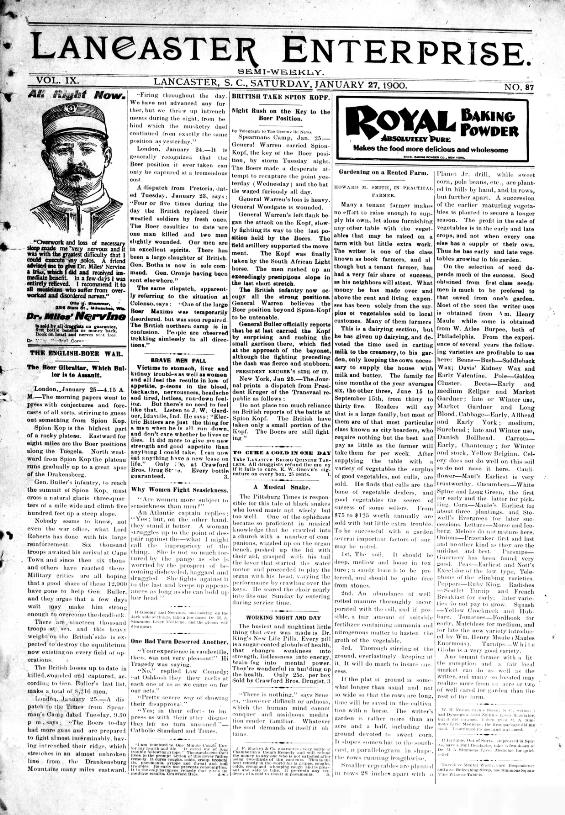Gardening on a Rented Farm, Lancaster Enterprise, January 27, 1900
Click here to download the excerpt

An article by Howard M. Smith, describing how tenant farmers could make plenty of money if they planted vegetables.
Excerpts
Many a tenant farmer makes no effort to raise enough to supply his own, let alone furnishing any other table with the vegetables that may be raised on a farm with but little extra work. The writer is one of the class known as book farmers, and although but a tenant farmer, has had a very fair share of success, as his neighbors will attest. What ‘ money he has made over and above the rent and living expenses has been solely from the surplus of vegetables sold to local customers. Many of them farmers This is a dairying section, but he has given up dairying, and devoted the time used in carting milk to the creamery, to his garden, only keeping the cows necessary to supply the house with milk and butter. The family for nine months of the year averages six, the other three, June 15 to September 15th, from thirty to thirty-five. Readers will say that is a large family, but most of them are of that most particular class known as city boarders, who require nothing but the best and pay as little as the farmer will take them for per week. After supplying the table with a variety of vegetables the surplus of good vegetables, not culls, are sold. He finds that culls are the bane of vegetable dealers, and good vegetables the secret of success of some sellers. From $75 to $125 worth annually are sold with but little extra trouble. To be successful with a garden several important factors of sue may be noted.
Questions:
What is the source of the article?
What do you think is the author’s motive for writing this article?
What is his attitude toward tenant farmers?
Do you think he is a reliable source of information? Why or why not?
If you could speak to the author, what would you ask him?